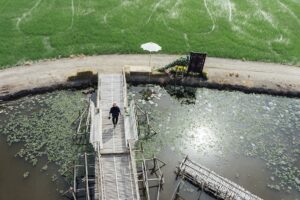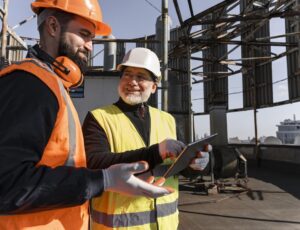Before starting any large-scale project, whether industrial, mining, recreational, or healthcare-related, one of the most important steps is conducting Economic Feasibility Studies. These studies help organizations evaluate the financial and practical viability of a project. By analyzing costs, revenues, risks, and benefits, decision-makers can determine if the investment is worthwhile.
In this article, we will explore what economic feasibility studies are, why they are important, the main steps involved, and how businesses can use them to ensure long-term success.
What Are Economic Feasibility Studies?
An Economic Feasibility Study is a structured evaluation of whether a project makes financial sense. It assesses the projected costs, expected revenues, market conditions, and economic impacts. The ultimate goal is to answer a simple but crucial question: Is this project financially viable and sustainable?
Key elements include:
- Initial capital investment
- Operating costs
- Potential revenue streams
- Return on investment (ROI)
- Risks and uncertainties
Importance of Economic Feasibility Studies
Conducting a feasibility study offers several advantages:
- Risk Reduction – Identifies potential financial risks before committing capital.
- Strategic Planning – Provides data-driven insights to guide decision-making.
- Investor Confidence – Increases the likelihood of attracting stakeholders and financing.
- Efficient Resource Allocation – Helps organizations allocate money, time, and manpower effectively.
- Regulatory Alignment – Ensures the project complies with local economic and environmental regulations.
Key Steps in Conducting Economic Feasibility Studies
1. Market Analysis
Understanding demand, competition, and industry trends is the foundation of any feasibility study. Market analysis examines consumer needs, target audience, and the potential for growth.
2. Technical Assessment
Evaluates the resources, technology, and infrastructure required for the project. Without a solid technical base, even financially sound ideas may fail.
3. Financial Evaluation
This stage involves calculating projected costs and revenues. Tools like Net Present Value (NPV), Internal Rate of Return (IRR), and Payback Period are commonly used.
4. Risk Analysis
Every project faces uncertainties. Economic feasibility studies assess market volatility, cost overruns, delays, and external risks such as inflation or regulatory changes.
5. Environmental and Social Impact
Beyond financial aspects, modern feasibility studies also consider environmental sustainability and community benefits. This broader perspective enhances long-term value.
Applications of Economic Feasibility Studies
Feasibility studies are widely applied in:
- Mining Projects – Assessing extraction costs, environmental impact, and market demand.
- Industrial Projects – Evaluating production capacity, raw material availability, and logistics.
- Healthcare Facilities – Measuring patient demand, cost of equipment, and service pricing.
- Recreational and Tourism Projects – Determining visitor potential, maintenance costs, and return on investment.
Challenges in Conducting Feasibility Studies
- Data Availability – Reliable data is often difficult to obtain.
- Market Uncertainty – Sudden economic shifts can change forecasts.
- High Costs – Conducting a detailed study requires time and resources.
- Bias in Analysis – Overly optimistic or pessimistic assumptions can lead to misleading results.
Best Practices for Effective Economic Feasibility Studies
- Use reliable and updated data sources.
- Involve multidisciplinary experts (engineers, financial analysts, environmental specialists).
- Include sensitivity analysis to test different scenarios.
- Align the study with both short-term and long-term organizational goals.
- Present findings clearly for decision-makers and stakeholders.
Conclusion
Economic Feasibility Studies are an essential tool for organizations planning industrial, mining, healthcare, or recreational projects. They provide a clear roadmap for decision-making, minimize risks, and improve the chances of success.
At Anin Engineering Company, we specialize in executing industrial, mining, healthcare, and recreational projects with a strong foundation in feasibility and planning. If you are considering a new project and want to ensure its success, we encourage you to contact us through our homepage and explore how our expertise can support your goals.
FAQ
1. What is the main purpose of an economic feasibility study?
The main purpose is to determine whether a project is financially viable and worth pursuing, by analyzing costs, revenues, and risks.
2. Who should conduct economic feasibility studies?
Typically, they are conducted by a team of experts including financial analysts, engineers, and industry specialists to ensure a comprehensive evaluation.
3. How long does it take to complete an economic feasibility study?
The duration depends on the complexity of the project. Small projects may take a few weeks, while large industrial or mining studies may take several months.
4. What industries use economic feasibility studies?
They are commonly used in mining, industrial development, healthcare, tourism, and infrastructure projects.
5. What tools are used in financial evaluation?
Common tools include Net Present Value (NPV), Internal Rate of Return (IRR), and Payback Period to assess profitability and risk.
6. Can an economic feasibility study guarantee project success?
No study can guarantee success, but it significantly reduces risks and improves decision-making by providing reliable data and insights.
7. Why is risk analysis important in feasibility studies?
It helps identify potential threats such as market changes, inflation, or project delays, allowing managers to prepare mitigation strategies.
8. How often should feasibility studies be updated?
They should be reviewed periodically, especially when market conditions, regulations, or project scope change.
9. What role does environmental impact play in these studies?
Modern feasibility studies also consider sustainability and social responsibility, ensuring projects align with environmental regulations.
10. How can Anin Engineering Company help with feasibility studies?
Anin Engineering Company provides expert feasibility studies for industrial, mining, healthcare, and recreational projects, ensuring your investments are secure and profitable.





